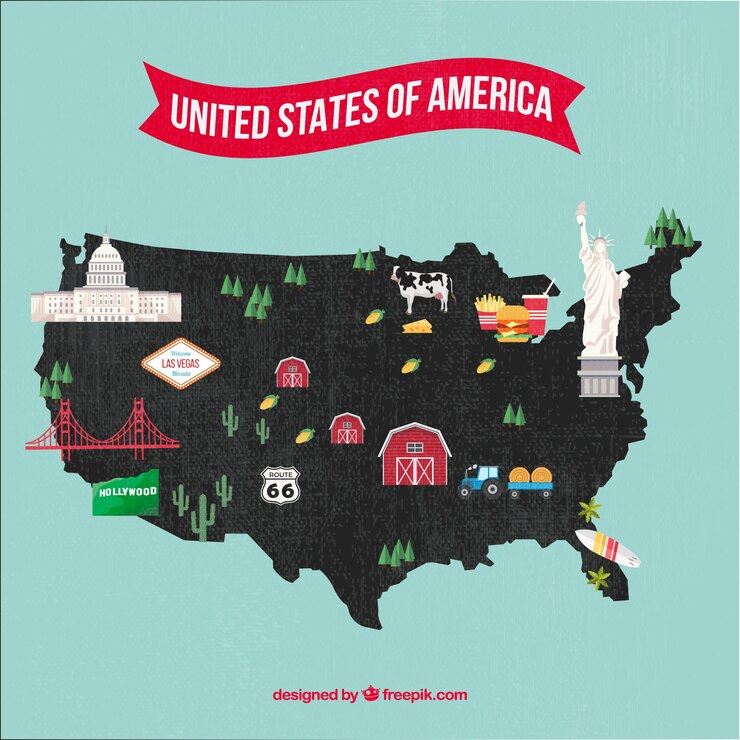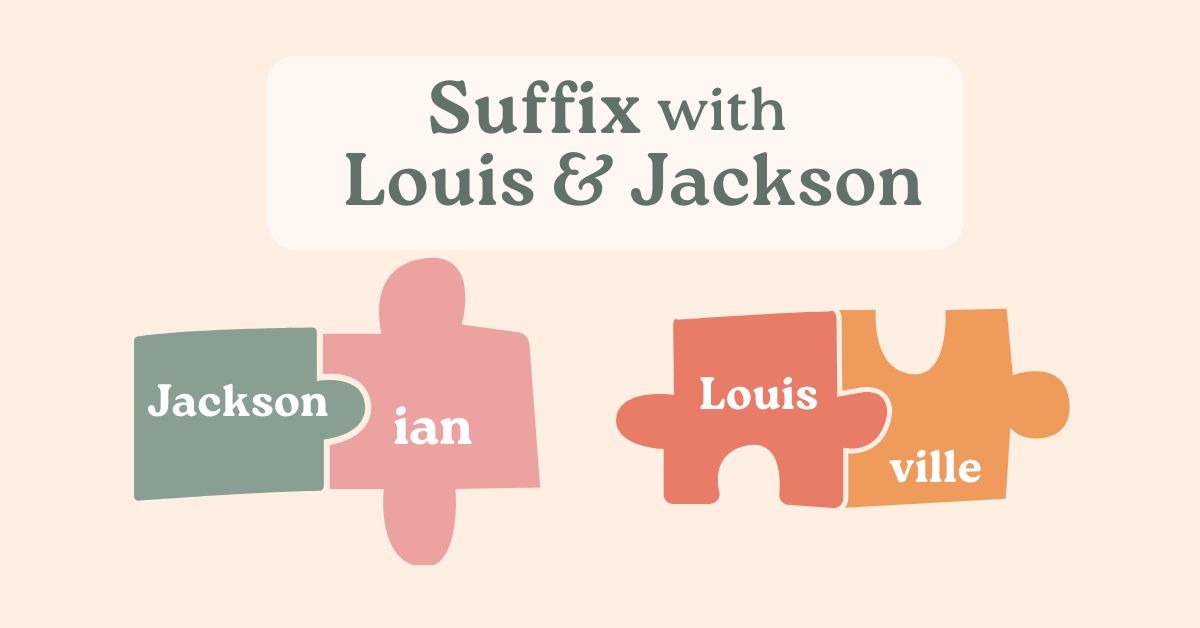The suffix for Louis and Jackson is a small but important part of many city names around the world. When you look at cities like St. Louis or Jacksonville, you’ll notice they share a common ending: -ville. This suffix has an interesting history and plays a key role in the way city names are formed. Understanding this simple ending can help us discover more about where these cities came from and how they got their names.
So, what does -ville mean, and why is it so common in cities like St. Louis and Jacksonville? The suffix -ville comes from the French word for “town” or “city,” which is ville. It was often added to a person’s name or an area to indicate that a town or settlement was named after them. This explains why many cities, especially in the United States, have names that end with -ville—it’s like saying “the town of Louis” or “the town of Jackson.”
What is the Suffix for Louis and Jackson?
The suffix for Louis and Jackson is a small but significant part of many city names, particularly in the United States. The suffix -ville comes from the French word “ville,” which means “town” or “city.” It is often added to the name of a person or a place, indicating that the town or city is named after someone or something.
When we look at St. Louis or Jacksonville, we can see that the names of these cities end in -ville, which means they were likely named after a person or family.For instance, Jacksonville was named after Andrew Jackson, the seventh Leader of the US.Also, St.Louis was named after Ruler Louis IX of France.
This simple suffix is used in many cities across the world, especially in regions influenced by French culture and language. It tells us something important about the city’s history, whether it’s the person it was named after or the area’s historical roots.
How the Suffix for Louis and Jackson Shaped American Cities

The addition for Louis and Jackson has molded numerous city names across the US.Cities such as Louisville, Jacksonville, and Nashville are perfect examples of how the -ville suffix has become an essential part of American city names. This suffix helps us understand how American cities developed and grew over time.
Many of these cities were founded during the time when French explorers and settlers were establishing colonies in North America. The -ville suffix was commonly used to name new towns after people or places of significance. This helped honor the individuals or groups who contributed to the founding or development of these cities.
Over the years, the tradition of adding -ville to city names continued, even as the United States expanded beyond its French influences. This pattern remains strong today, with new cities and towns still using -ville as a suffix to reflect their historical or cultural origins.
From France to America: The Journey of the Suffix for Louis and Jackson
The journey of the suffix for Louis and Jackson began in France. In the 17th and 18th centuries, French settlers and explorers used the word ville to mean a town or city. As these settlers traveled to North America, they brought the tradition with them, adding -ville to many new towns they founded.
This practice continued as the French influence grew in North America, especially in regions like Louisiana. The French language and culture were strong in this area, and many of the cities still reflect this influence today. Over time, the -ville suffix became part of American culture, helping to shape cities and towns in both the South and the Midwest.
The -ville suffix can still be seen today in numerous cities, showing how this simple French word has traveled far from its roots to become a key part of city names in the U.S. and beyond. This tradition highlights the lasting impact of French explorers and settlers on American history.
Why Do So Many Cities End with -ville?
Many cities across the world end with -ville, and it’s important to understand why this is so common. The use of -ville in city names has its roots in French, where it simply means “town” or “city.” As French-speaking explorers and settlers traveled to different parts of the world, especially North America, they brought this naming tradition with them.
The -ville suffix became a popular way to name cities in honor of important people, places, or events. For instance, Nashville was named after Francis Nash, a legend in the American Progressive Conflict. Likewise, Louisville is named after Ruler Louis XVI of France. These cities were not only named for these individuals but also for the cultural and historical significance they carried.
Today, the -ville suffix is still widely used in city names across the U.S. and beyond. It remains a symbol of the influence of French culture and language on the development of towns and cities worldwide. Cities like Jacksonville and Knoxville continue this tradition, reminding us of the historical connections that shape the places we live in.
Famous Cities with the Suffix for Louis and Jackson

There are many famous cities around the world that end with the suffix for Louis and Jackson. Here are some of the most well-known cities with this distinctive ending:
- Jacksonville – Named after Andrew Jackson, the seventh leader of the US.
- Louisville – A city in Kentucky named to pay tribute to Lord Louis XVI of France.
- Nashville – Named after Francis Nash, an American Revolutionary War hero.
- Knoxville – Named after Henry Knox, the main Secretary of Battle under George Washington.
These cities are just a few examples of how the -ville suffix plays a role in shaping the history and identity of towns and cities. Each one reflects the person or place it was named after, giving it a unique connection to the past.
The Role of -ville in City Naming Traditions
The -ville suffix plays an important role in city naming traditions, especially in areas influenced by French culture. In many cases, -ville is added to a personal name or a location to create a sense of identity for the settlement. This helps preserve the memory of important people or events in history.
Cities named with -ville are often reminders of the past. They tell stories of exploration, settlement, and the honoring of key individuals in history. The practice of using -ville has become so widespread that it is now recognized as a common suffix in many languages and cultures, especially in the U.S.
This naming tradition continues today, where new towns and cities still adopt the -ville suffix to show their connection to the past and their cultural influences. Whether it’s a small town or a large city, the -ville suffix remains an important part of city naming practices.
Conclusion
The suffix for Louis and Jackson plays a big role in how many cities around the world got their names. The -ville ending, which means “town” or “city,” comes from the French language and was used to honor important people or places. Cities like Jacksonville and Louisville remind us of the history and people behind their names, helping us connect with the past.
So, next time you see a city name ending with -ville, you’ll know it’s more than just a name. It’s a part of history that tells a story about where the city came from and who it was named after. Whether it’s a small town or a large city, the -ville suffix continues to be an important part of how we name places today.
FAQs
Q: What does the suffix for Louis and Jackson mean?
A: The suffix -ville means “town” or “city” in French, and it is added to city names to honor important people or places.
Q: Why do many cities have the suffix -ville?
A: Many cities use the -ville suffix because of French influence, where it was commonly added to names of towns to reflect important historical figures or locations.
Q: Which cities are examples of the suffix for Louis and Jackson?
A: Cities like Jacksonville, Louisville, and Nashville are famous examples of the -ville suffix.
Q: Where did the suffix -ville come from?
A: The -ville suffix comes from the French language, where it means “town” or “city.” It was brought to America by French settlers and explorers.
Q: Is the suffix -ville used outside the United States?
A: Yes, the -ville suffix is used in many countries, especially in places influenced by French culture and language, like Canada and parts of Europe.
Q: Does the suffix -ville always mean the town is named after a person?
A: While many cities with the -ville suffix are named after people, it can also be used to indicate a place of importance or historical significance.




